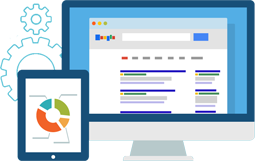
Will 301 Redirects Affect Your SEO?
When you first establish your website, chances are you’re not entirely sure what you’re doing. Maybe you were making more pages than you needed to, maybe you weren’t sure of what to accomplish yet and kept publishing whatever, maybe you were posting low-quality content that wouldn’t get you anywhere, or maybe you even ended up with a different URL. Whatever the case is, website owners frequently delete pages all the time.

However, sometimes a deleted page will still be indexed on Google. Searchers could click on them and get taken to an empty page, which impacts a website’s bounce rate. To solve that, web developers use 301 redirects.
301 redirects are pretty simple. They’re essentially stepping stones—when searchers click on a deleted page, 301 redirects automatically take them to another page on the website. This is all done seamlessly so searchers won’t even realize they clicked onto a dead link. That way, searchers can still find what they want while website owners won’t have their rankings affected.
So, What’s the Problem?
Some people think that 301 redirects are a hassle. Let’s say that a website uses 10 redirects for a dead link for whatever reason—both the searcher and Google will have to jump on 10 stepping stones before reaching their final destination. Theoretically, this would take a longer time to reach the desired page than if the website had just used one 301 redirect or none at all. This can then affect your page loading speed.
Additionally, what happens if the redirect isn’t as good as the old one? Would PageRank from the old link transfer to the new one, or would the new one fall off the rankings eventually? And if the redirect is a lot better than the old one, would Google index the redirect just as thoroughly, or would it still use PageRank from the old one?
Let’s take a look at the evidence compiled by an SEO company in Los Angeles.
Where’s the Evidence?
The evidence goes back to 2012. Matt Cutts, then head of Google’s Webspam Team, said in a video that while Google could follow an indefinite number of redirects, it usually stops after four or five hops. Then the next year, he says that redirects take away a small percentage of PageRank, though the exact measurements were never mentioned.
In 2016, John Mueller, Google’s Webmaster Trends Analyst mentioned 301 redirects concerning HTTPS conversion. He says that “…for 301 or 30.2 redirects from HTTP to HTTPS, no PageRank is lost.”
Lastly, in 2020 and 2021, both Mueller and Google addressed redirects again. The former confirmed that multiple redirects affect page loading speed and that Google only hops a max of five redirects. The latter, on the other hand, made an update saying that HTTPS conversion is the only 301 redirect that’ll always get crawled correctly. Specifically, they said that “…a server-side redirect has the highest chance of being interpreted correctly by Google.”
301 redirects can be positive, negative, and neutral!
It is clear from the evidence that Google differentiates HTTPS conversion from other kinds of redirects. That’s probably because HTTPS conversion is directly related to the user’s safety when Internet browsing—if having multiple redirects means having a safer user experience, then so be it. It will help boost your rankings.
Meanwhile, all other redirects seem to be either neutral or negative. Having redirects doesn’t seem to affect your ranking much at all; rather, it’s the number of redirects. So, as long as you’re redirecting your web pages in the fewest number of steps possible, your PageRank will be safe.
How Los Angeles SEO services can help with 301 redirects?
Los Angeles SEO (search engine optimization) services can help with implementing 301 redirects in a few different ways:
- Identifying pages that need to be redirected: SEO services can help identify pages that are no longer relevant or are returning 404 errors (page not found) and recommend that they be redirected to a more relevant page.
- Implementing the redirects: SEO services can help implement the actual redirects by updating the website’s code or by using tools like .htaccess files (for Apache servers) or URL Rewrite (for IIS servers).
- Updating internal links: SEO services can help update internal links on the website to point to the new location of the page, ensuring that users and search engines can find the correct page.
- Monitoring the redirects: SEO services can help monitor the redirects to ensure that they are working properly and that users and search engines are being directed to the correct page.
Overall, using Los Angeles SEO services to help with 301 redirects can help ensure that your website is easy to navigate and that it ranks well in search engine results. However, our Los Angeles SEO experts unanimously agree that 301 redirects need to be used frugally so they won’t affect your site’s rankings.

